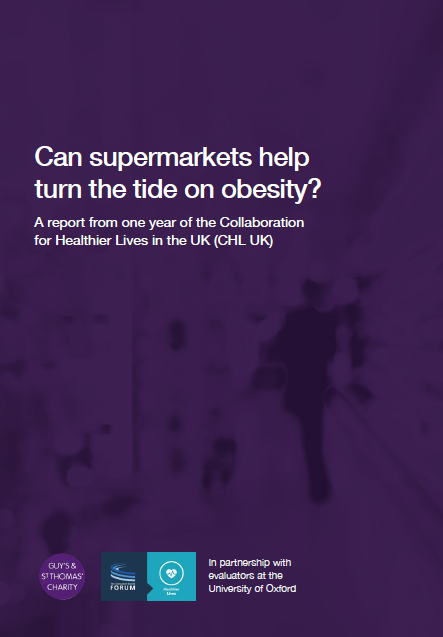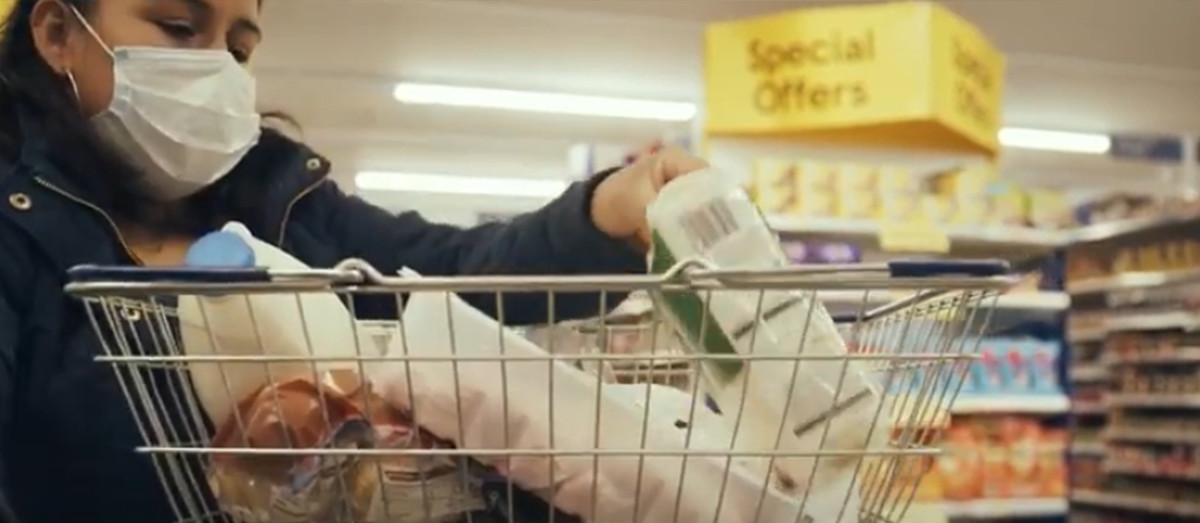In the UK, despite a world-renowned public health system, being healthy can be difficult for some. The COVID-19 lockdown hasn’t helped, as a lack of physical movement, school closures and limited access to healthy snacks has led to children gaining weight even faster, as highlighted in a recent article in The Times. Childhood obesity is a genuine concern, and industry has been working to support actions that empower families and communities to live healthier lives.
Collaboration for Healthier Lives UK brings together a coalition of members from The Consumer Goods Forum’s global Collaboration for Healthier Lives Coalition of Action alongside key local stakeholders – including public health authorities, academics, local actors and government figures – to drive behavioural change and positively impact consumer health in the London Boroughs of Lambeth and Southwark.
Established in Spring 2019, CHL UK includes some of the UK’s leading food retailers and manufacturers. Its focus is families living on lower incomes, bringing companies together to improve the healthiness of shopping baskets for those with less time and money to spend. In fact, our commitment is to design and test initiatives that work particularly for those on the lowest incomes, as we acknowledge the role inequality plays in driving poor health.
18 months on, we have just published our annual progress report. Of course, the two questions I often get from the media and new organisations interested in joining CHL UK are “What impact are you having?” and “Is it working?” The new report, produced with the support of Guy’s and St Thomas’ Charity, including data analysed by the University of Oxford, answers in part these questions. It also shows some great case studies of what we have learnt to date. I’d encourage everyone interested in this topic to read the full report and I wanted to share some thoughts with you.
-
We Have Learned a lot, but There is No Silver Bullet
We have introduced a number of nudges and interventions over the course of CHL UK. Some have been more successful than others, but we have learned in order to generate a step-change impact, multiple interventions will be needed at any one time, and they need to be both sustained and scaled. One-off interventions in single stores will not deliver the impact we need. Many interventions are needed if our industry is to drive positive change and make progress.
Just some examples from some trials that generated positive results include:
- 13% more fruit and vegetables sold
- 19% less fried chips sold, substituted for a healthier baked variety
- 22% fewer packets of confectionary sold
These are promising results, but there is no silver bullet or quick win, and there is also a list of trials that did not work. Success will take a sustained effort from all stakeholders and the interventions need to be commercially sustainable. We also need to put more emphasis on scale, focusing on fewer trials but going big when we do. The data suggests we need to dig deeper as some interventions are barely scratching the surface.
-
We Know Data is Key to Driving Change
The old saying, “you can’t manage what you don’t measure” is true here too. Proper data analysis is a critical step to understanding what’s working and what’s not. Data sharing takes time and we need to ensure data protection rules are met and we need time to conduct a proper analysis.
The University of Oxford has been a key partner in this effort, and we are delighted to have their analysis included in the report. If we are to learn and improve, partnerships with academia are important as we move forwards.
-
We Understand Health Needs to be Sustainable
Consumers are driving the movement towards what’s good for you is good for the planet. Food needs to be sustainable if we are to secure food systems in the future. Our global team are working towards driving behaviour changes that promote healthier and more sustainable baskets.
They are developing a ‘framework of action’ that is data driven and anchored in CGF activities. The framework will drive healthier categories, as recommended by the local health authorities in each region, sustainable production, biodiversity, losses and waste and progress communication. A global-local approach will be taken – meaning we take out global strategy and implement in a way that works for the local region – and testing of the framework indicators will begin in certain CHL initiatives in 2021, notably the UK. A step-by-step approach will allow us to better understand the right behaviours to nudge. For example, less protein consumption and more fruit and veg or plant-based consumption.
-
We have Shown the Business Case Exists
It’s important that companies view health as a business imperative, and, as a first step, develop and disclose health strategies that cut-across the whole business. CHL UK has given companies a forum for collaborating and sharing insights – a step toward accelerating progress in an area where progress is seriously needed.
But we can’t do this alone. It requires a multi-stakeholder effort and we are delighted CHL UK brings so many to the table. However, in the great scheme of things, it’s still a relatively small group and we need to get more stakeholders onboard.
-
We Need Governments to do More
Governments are a key player in the fight against obesity and other health-related challenges impacting communities across the UK. Lambeth and Southwark include the most affluent and deprived regions in the UK, so working with local health authorities, community groups and Public Health England has been vital. However, more nuanced nutritional frameworks would help to define ‘healthier’ across all product categories. Regulation from the UK government could be a powerful tool in making it easier for people to adopt healthier diets and lifestyles. Regulation can also be seen by businesses and NGOs as a way to accelerate and scale transformation efforts.
To conclude, bringing this many CGF members together on a shared vision and project – many of whom compete with each other for sales on a daily basis – is an achievement. Add to this the stakeholders from other sectors who have joined our movement, and we have started something we can be proud of. However, it is just the beginning and it’s still a results-driven business. While we’ve seen some positive shifts in the data, we know there is more to do.
We have learned a lot over these last 12-18 months, and I hope that the second phase on CHL UK will be bigger and more impactful.
The CHL UK team would like more players to get involved and help drive a collective effort to empower people to live healthier lives. If your organisation is interested in getting involved or learning more, please contact me at [email protected].

Sharon Bligh
Healthier Lives Director
The Consumer Goods Forum


